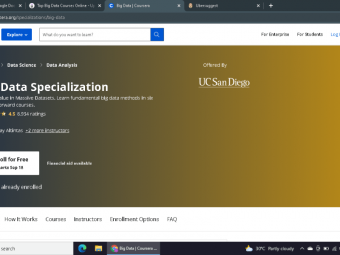We all know that raw data isn’t helpful on its own, right? Despite the ongoing buzz, it is essential to have meaningful data. This is the main reason why SQL, or what we also call Sequel, was introduced.
SQL – which is short for Structured Query Language, is among the most common languages for organizing and extracting data. The data is stored in the relational database, which has tables with rows and columns.

In this article, we’ll discuss the SQL basics for beginners. What it is, what it is used for, and more. Read on to find out.
What is SQL, and What Does It Stand for?
Well, we’ve already learned that SQL is short for Structured Query Language. Let’s discuss what it is. Since we know that data is the central part of any mobile or web application, whether it is a user’s profile information or a friend’s posts – therefore, a database system is required to hold this data. This enables the programmers to work efficiently with the data.
Thus, in short, an SQL server is used for communicating with different databases to manage the data and information contained in them.
Is it a Programming Language?
Most people are often confused about whether SQL is a programming language or not. Well, the answer is yes. SQL offers variables, logic directives, looping, and so much more. But, it is still quite different from C++ and Java. SQL is the 4GL or what we call a fourth-generation language, while Java and C++ are 3GLs (third-generation languages).

You might be thinking;
“What is SQL used for?”
Being different from the others, SQL is mainly used to manipulate, store, and retrieve the data rather than being used as a programming language for software, applications, and websites.
Different Elements of SQL
SQLs mainly initiate with keywords and commands and end with a semicolon. Here are some examples of SQL to clarify the concept a little more.
Keywords
Keywords are mainly used to perform distinctive operations in databases like VIEW, CREATE, JOIN, etc. These words are commands or keywords used for numerous kinds of functioning.
Identifiers
There are different names for the objects in a database known as identifiers. Some examples of identifiers include columns, indexes, tables, etc.
Search Conditions
These are used to choose the subsets in the rows and columns. Moreover, it enables you to form IF statements to identify whether the prerequisites are true or false.
Expressions
Expressions are symbols or strings that are used in the functioning of mathematical operations.
Data Types
Quite clear from the name, data types are used to detect which data will be stored in the rows and columns when we create the tables.
MySQL
SQL comes with different versions and frameworks, but the most prominent of them all is MySQL. It is an open-source solution used to facilitate SQL’s managing and manipulating the data for the different software and applications.

Your Learning Objectives as SQL Developer
If you want to work as a programmer, SQL developer, or analyst, some learning objectives and a focused and dedicated mind are enough.
1. You should know how to perform basic SQL commands to attain the data you require from a database.
2. Learn about the SQL tables, their organization, and how the data is joined from numerous tables to subselect the information better.
3. It is essential to know how to perform aggregations and calculations on the selected information and data.
4. Developing and structuring SQL databases that are instinctive for others to enquire about the information and data.
5. You should be aware of how to present your research in a table or visual-like manner.
SQL Developer Salaries
Most SQL Developers have an average salary of $70,000 even though there is a split among the programmers (who have more salaries) and data analysts (who have lower wages). So, if you are working as a data engineer or scientist, you’ll earn more than a data analyst. They mainly emphasize inquiring about the data and presenting it to the audience.

Bottom-Line
With the changing trends in the systems, tasks are becoming complicated. One of such innovative yet complex systems is the SQL which is now being used to store, manipulate, interpret and inquire the data in the databases.
This article is a thorough description of what SQL is and how important it can be. For more information, stay connected.
 Install Studocu Chrome Extension
Install Studocu Chrome Extension









